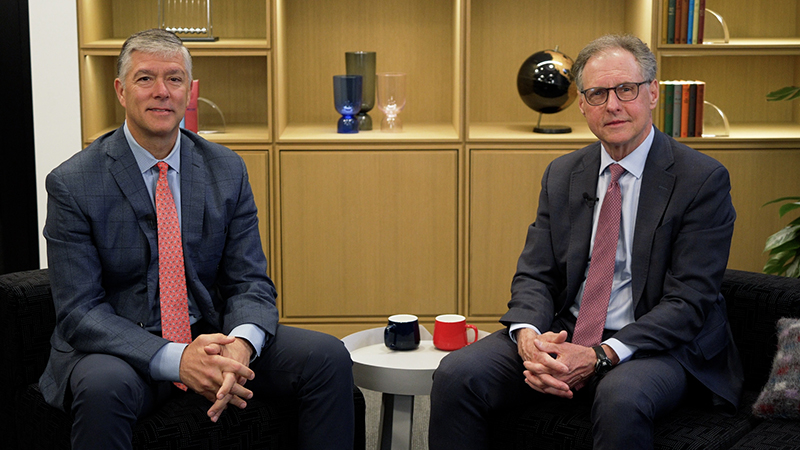A new look at portfolio construction
As investors navigate inflation, bouts of market volatility, the tax implications of new policy and more, do the principles that shape a balanced portfolio continue to hold up?
Portfolio construction remains an essential part of successful investing, even more so as today's markets face heightened volatility from ongoing trade negotiations and evolving government policies. Building a sound portfolio in any market relies on a few key things: your time horizon, risk tolerance and clear goals. Also, regular rebalancing can help keep you on track as market movements naturally shift portfolio weights. While traditional investments like stocks and bonds are mainstays for most portfolios, today's environment presents compelling opportunities through alternative investments. For qualified investors, real assets, private equity, hedge funds and private credit markets can all help provide diversification and potentially enhanced returns while reducing correlation to traditional market movements.
“As we watch for signals of both weakness and strength in the economy for guidance over the near-term, the principles of portfolio construction can help shape investing strategy over the longer term,” says Chris Hyzy, Chief Investment Officer, Merrill and Bank of America Private Bank.
In the video above, Hyzy sits down with Joe Curtin, head of Portfolio Management for the Chief Investment Office, Merrill and Bank of America Private Bank, and Rolando Castellanos, head of Alternative Investments Strategy & Implementation for the Chief Investment Office, Merrill and Bank of America Private Bank, for an insightful discussion about the new risks investors are facing, and the new potential opportunities available that can help build a resilient portfolio.
For latest insights on the markets, tune in regularly to the CIO's Market Update audiocast series.
A Private Wealth Advisor can help you get started.
Important disclosures
The opinions expressed are as of 8/18/2025 and are subject to change.
Investing involves risk, including the possible loss of principal.
Past performance is no guarantee of future results.
Investments have varying degrees of risk. Some of the risks involved with equity securities include the possibility that the value of the stocks may fluctuate in response to events specific to the companies or markets, as well as economic, political or social events in the U.S. or abroad. Bonds are subject to interest rate, inflation and credit risks.
Alternative investments are intended for qualified investors only. Alternative investments are speculative and involve a high degree of risk. Alternative Investments such as derivatives, hedge funds, private equity funds, and funds of funds can result in higher return potential but also higher loss potential. Changes in economic conditions or other circumstances may adversely affect your investments. Before you invest in alternative investments, you should consider your overall financial situation, how much money you have to invest, your need for liquidity, and your tolerance for risk.
The Chief Investment Office (CIO) provides thought leadership on wealth management, investment strategy and global markets; portfolio management solutions; due diligence; and solutions oversight and data analytics. CIO viewpoints are developed for Bank of America Private Bank, a division of Bank of America, N.A., (“Bank of America”) and Merrill Lynch, Pierce, Fenner & Smith Incorporated (“MLPF&S” or “Merrill”), a registered broker-dealer, registered investment adviser and a wholly owned subsidiary of Bank of America Corporation (“BofA Corp.”).
BofA Global Research is research produced by BofA Securities, Inc. (“BofAS”) and/or one or more of its affiliates. BofAS is a registered broker-dealer, Member SIPC and wholly owned subsidiary of Bank of America Corporation (“BofA Corp.”).



